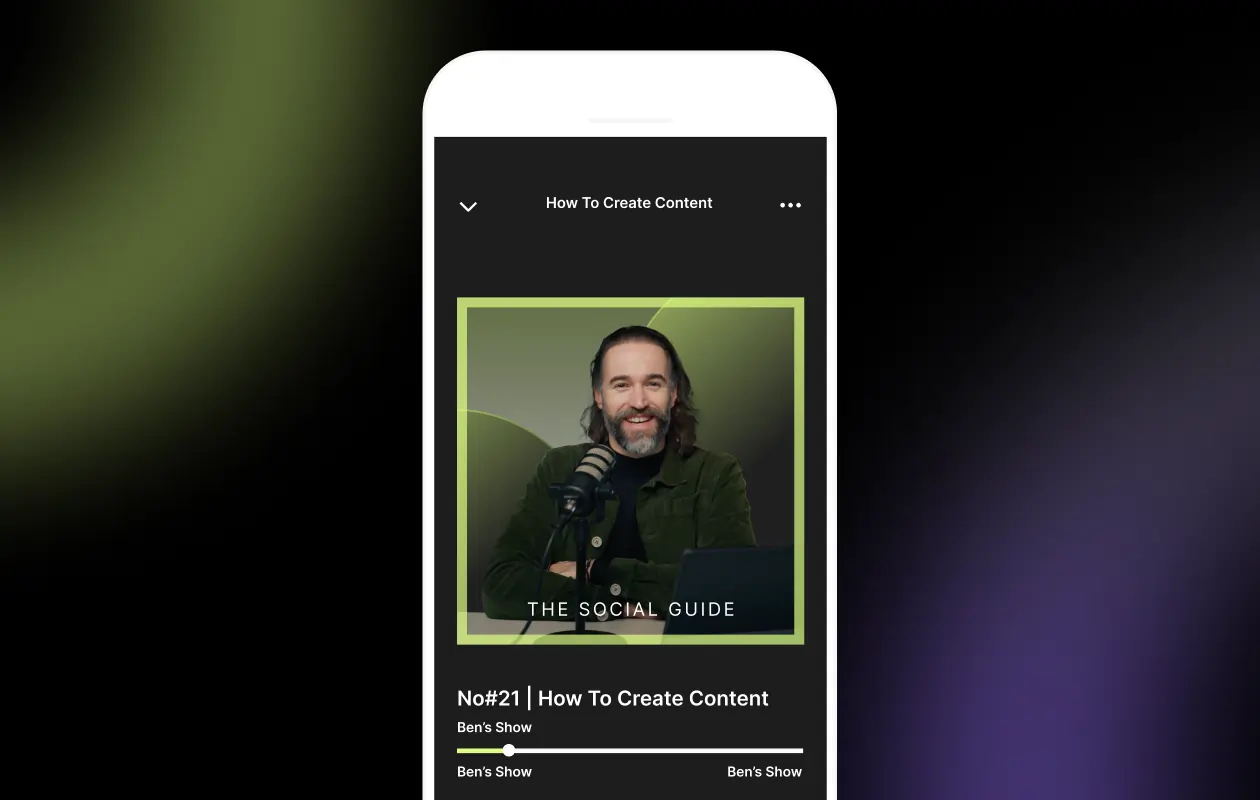Introduction
Content Marketing, In the digital age, podcasts have rapidly emerged as a dominant content format, delivering powerful storytelling, niche expertise, and personality-driven branding directly to the ears of a global audience. As businesses, creators, and entrepreneurs increasingly embrace this medium, the need to market podcast content effectively becomes a vital strategy for visibility, growth, and engagement. While podcast creation involves scripting, recording, and editing, the real challenge lies in distributing that content and converting listeners into loyal followers. This is where free podcast content marketing tools become indispensable. These tools empower podcasters to promote, repurpose, analyze, and amplify their episodes across multiple platforms—without the burden of a hefty budget. Whether you’re a beginner launching your first podcast or a seasoned host seeking more traction, leveraging free tools can make a transformative difference in your marketing efforts. Please visit this.
The Growing Importance Of Podcast Marketing
As the podcast industry continues to boom, so does the competition. With over five million podcasts and hundreds of millions of episodes available, simply publishing content is no longer enough. You need a marketing strategy that ensures your voice is heard amidst the noise. Effective podcast content marketing involves attracting new listeners, retaining your current audience, engaging across platforms, and converting traffic into measurable growth. Podcasts Content Marketing can drive traffic to your website, support product or service promotions, and build trust with your audience. To do this efficiently, podcasters must rely on content marketing tools that help with SEO, social sharing, email integration, transcription, and engagement analytics. Thankfully, many free platforms now offer these features, allowing creators to focus on delivering value while automating or streamlining their promotional tasks.
Transcription Tools And Their Role In Marketing Podcasts

One of the foundational pillars of podcast content marketing is transcription. Converting audio into written content expands your reach by making your episodes accessible through search engines and readable for those with hearing impairments. Free transcription tools like Otter.ai (with limited free usage), Descript, and Google Docs Voice Typing provide podcasters with a basic but powerful way to turn audio into blog posts, show notes, or quote snippets. A full transcript of an episode serves multiple purposes: it improves SEO ranking, creates a content base for social media excerpts, and can even serve as material for newsletters or ebooks. With transcription, you’re not just publishing a podcast—you’re turning a single episode into a multi-format marketing asset that can engage different audience segments across various platforms.
Creating Audiograms And Social Media Snippets

To capture attention on platforms like Instagram, Facebook, Twitter, and LinkedIn, podcasters can convert their audio content into visually appealing video snippets called audiograms. Free tools like Headliner and Wavve allow users to upload short segments of their podcast, add captions, images, waveforms, and brand elements, and export them as videos for social sharing. These micro-content pieces serve as teasers or highlights that can drive traffic back to the full episode. A one-minute audiogram with a catchy title and a thought-provoking quote can dramatically increase engagement and reach. By consistently sharing these snippets, podcasters can stay visible in followers’ feeds and build anticipation for upcoming episodes. When used effectively, these tools enhance brand awareness and encourage social sharing, contributing to a larger content marketing funnel.
Scheduling And Distributing Across Platforms

Publishing a podcast is only the first step. Distribution and consistent scheduling are critical for sustained growth. Free podcast marketing tools like Buffer, Later, or even Meta Business Suite allow podcasters to schedule social media posts, audiograms, links, and promotional messages across multiple platforms. This not only saves time but ensures that marketing remains consistent even when creators are focused on content production. Regular scheduling builds an audience habit, boosts engagement, and ensures that promotional materials reach your followers when they are most active. Some podcast hosting platforms like Anchor and Podbean also include built-in social sharing tools, allowing episodes to be distributed to all major listening platforms (Spotify, Apple Podcasts, Google Podcasts) and simultaneously shared via social media. This automated integration is vital for reach and convenience, especially for creators managing all aspects of production and marketing themselves.
Email Marketing Integration And Listener Retention

Email marketing remains one of the most effective content marketing strategies available. For podcasters, building a subscriber list ensures you have a direct line of communication with your audience outside of algorithm-controlled platforms. Free tools like Mailchimp (with its limited free tier), MailerLite, and ConvertKit for creators allow podcasters to collect email addresses, send newsletters, automate episode updates, and share exclusive content. Embedding links to new episodes, sharing behind-the-scenes insights, or offering free downloadable content can significantly improve listener retention and loyalty. Podcasting platforms often allow RSS feed integration with these tools, automating the email process every time a new episode is published. With minimal effort and no cost, podcasters can drive recurring traffic, generate feedback loops, and even monetize through affiliate links or promotions embedded in emails.
SEO Optimization For Podcast Content Marketing

Content Marketing, Search engine optimization is a powerful way to ensure your podcast episodes are discoverable by new listeners. However, unlike traditional blog content, podcasts are inherently audio-based, which search engines can’t easily crawl. This is why optimizing show notes, transcriptions, titles, and episode descriptions becomes vital. Free tools like Google Trends and Uber suggest help podcasters identify relevant keywords that can be incorporated into episode descriptions and blog-style summaries. SEO-friendly formatting ensures that when someone searches for a topic related to your podcast, your episode appears in the results. Content Marketing, Another effective strategy is to create companion blog posts for each episode using parts of the transcript or expanding on key themes discussed. This turns your audio content into a content-rich webpage that attracts organic traffic and encourages deeper engagement.
Analytics Tools For Measuring Performance

Tracking your performance is essential to refining your podcast marketing strategy. Free podcast analytics tools provided by hosting platforms such as Spotify for Podcasters, Apple Podcasts Connect, or Anchor offer key insights into audience demographics, listening habits, episode retention, and geographic location. These tools allow podcasters to identify what’s working and what needs improvement. For social media posts and audiograms, platforms like Headliner and Buffer also offer engagement metrics including views, shares, and click-through rates. Content Marketing, integrating Google Analytics with your podcast’s landing page or blog allows you to track website traffic driven by podcast episodes. This data is crucial in understanding listener behavior and tailoring future content to audience preferences. By consistently analyzing performance metrics, podcasters can improve content relevance, refine marketing strategies, and grow their audience more effectively over time.
Repurposing Podcast Episodes Into Blog Content

One highly efficient way to extend the life and reach of a podcast episode is through content repurposing. By converting audio into blog posts, articles, or even downloadable guides, podcasters can appeal to different learning styles and content preferences. Free writing tools like Grammarly, Hemingway Editor, or Google Docs enable podcasters to create polished written versions of their shows. A single podcast episode can be transformed into multiple blog posts, each focusing on a different subtopic discussed in the audio. This strategy not only boosts SEO but provides content that can be easily shared, bookmarked, and referenced. Repurposed content can also be repackaged into lead magnets like checklists or email courses, turning casual listeners into email subscribers or customers.
Using Free Design Tools To Brand Your Podcast

Visual branding plays a crucial role in content marketing. A consistent aesthetic across your podcast artwork, audiograms, social media posts, and website enhances recognition and professionalism. Free design tools like Canva offer customizable templates for podcast cover art, Instagram posts, thumbnails, and email banners. Content Marketing, By creating visually appealing graphics for each episode or quote highlights, podcasters can catch the attention of potential listeners scrolling through crowded feeds. Canva also allows collaborative editing, brand kits, and content scheduling in its free version, making it a versatile tool for content creators. Consistent branding across all touchpoints builds credibility and helps your podcast stand out in a saturated market.
Podcast Directories And Discovery Platforms

Listing your podcast on various directories is a fundamental step in podcast content marketing. While this is typically facilitated by your hosting platform, podcasters should also explore niche directories and free platforms that increase discoverability. Submitting your podcast to directories like Listen Notes, Podchaser, and Goodpods can improve SEO and drive new listeners. Many of these platforms allow creators to add descriptions, tags, and category filters, enhancing the chance of being found through searches or recommendations. Being present on multiple directories ensures a wider audience reach and helps establish credibility in the podcasting space.
Creating A Content Calendar For Podcast Marketing

A content calendar is a strategic tool that helps organize marketing activities around each podcast episode. Free platforms like Trello, Notion, and Google Calendar allow podcasters to plan their promotional timeline, content repurposing activities, guest collaborations, and publishing schedules. By mapping out when to post audiograms, send emails, publish transcriptions, and launch giveaways, podcasters can maintain consistency and prevent last-minute rushes. A well-maintained calendar also allows for performance review and optimization. Over time, it becomes a central hub for your podcast content strategy, ensuring all marketing channels are aligned and actively supporting your growth.
Collaborations And Guest Promotions

Content Marketing, Guest appearances are a powerful way to grow a podcast audience. When guests promote the episode to their own followers, your content gains access to new listeners who trust the guest’s recommendation. Free tools like Calendly help schedule guest interviews, while Google Forms can be used to gather guest bios, headshots, and promotional links. Content Marketing, Canva can be used to design co-branded promotional graphics. Sharing pre-written social media posts with your guest saves them time and increases the likelihood of cross-promotion. These collaborative efforts amplify visibility and allow both parties to benefit from expanded reach.
Conclusion
Podcasting has evolved far beyond audio storytelling—it is now a dynamic, multi-channel content marketing engine. With the rise of free podcast content marketing tools, creators no longer need a large budget to build an impactful presence. From transcription and social sharing to email marketing, SEO optimization, and analytics, the tools available today offer comprehensive support for every stage of the marketing journey. By thoughtfully combining these resources and integrating them into a cohesive strategy, podcasters can maximize the reach of every episode and continuously grow their audience. Whether you’re just starting out or scaling an established show, embracing these tools can turn your podcast from a hobby into a professional content powerhouse. With the right approach, every word you record becomes an opportunity to inform, inspire, and influence.

